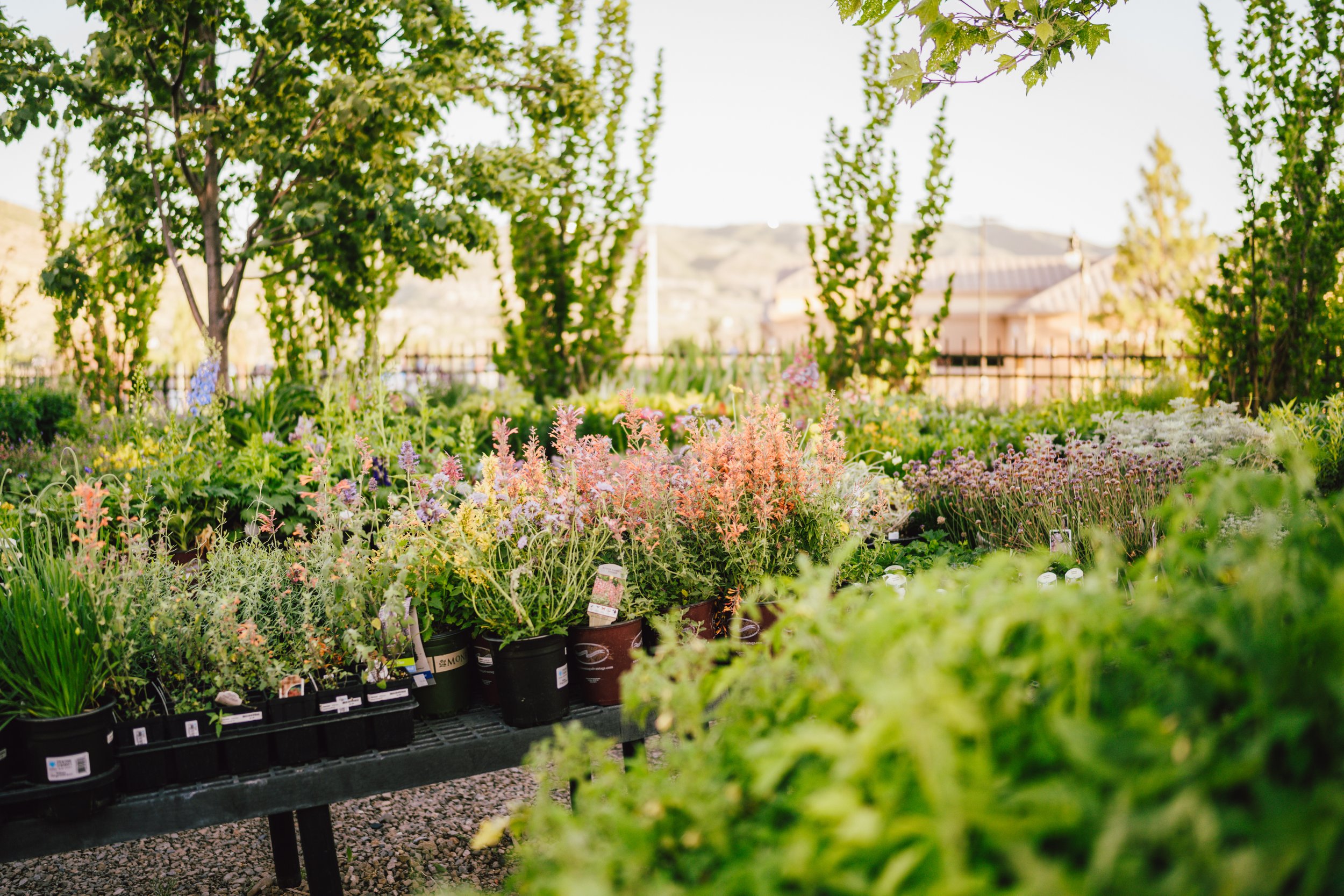
surround yourself with green
Spending time with plants can improve mental and physical health while bringing joy to a room, here’s how.
Let’s talk oxygen:
While all plants increase the oxygen in their space, the commonly referenced NASA Clean Air Study discovered that certain common indoor plants can provide a natural way of removing toxic agents from the air. Chemicals like formaldehyde, benzene and trichloroethylene from carpet backing, insulation, paints and solvents can contaminate our homes, pollute our air and reduce our quality of sleep.
Here are a few of our favorite helpful houseplants that will keep you and your home feeling healthy and happy:
-
Spider Plants
Spider plants (Chlorophytum comosum) grow quickly and look great in hanging baskets, especially in your work space.
Spider plants have more than 200 species and many of them can survive a little forgetfulness from us.
Eliminates: formaldehyde, xylene

-
Pothos
This plant may be as close as plants can get to indestructible. It flourishes in a variety of conditions and can grow up to 8 feet long. It’s also considered one of the most effective indoor air purifiers for removing common toxins.
Eliminates: formaldehyde, xylene, toluene, benzene, carbon monoxide, and more.

-
Dracena
Dracaenas are a newbie green thumb’s dream. This large group of houseplants comes in all shapes, sizes, and colors. Choose from the tall corn plant, which has interesting markings, or the rainbow plant, which comes in bright purple.
Eliminates: formaldehyde, xylene, toluene, benzene, trichloroethylene

-
Sanseveria
Otherwise known as Snake Plants or Mother-In-Law’s Tongue, the Sansevieria is a frontrunner when selecting greens for your home—and is a great plant for newbies. This plant emits great amounts of oxygen and filter the air of toxins such as benzene, which may be present in synthetic fibers, resin, rubber and dyes.
Eliminates: Carbon Monoxide, Benzene

-
Ivy
English Ivy, also known as Hedera Helix, is a common plant seen in a lot of households or growing alongside city buildings… and for good reason. This fast-growing vine boasts many health benefits, particularly for our lungs. Research shows that English Ivy can help relax the airways and reduce coughing, making it is a great choice for those with asthma, bronchitis or other breathing difficulties and is even helpful for people with allergies.

“Plants look after us if we look after them”
— Unknown
Caring for your plants,
a reminder to care for yourself.
“ When I struggled mentally and found it hard to take care of myself, my plants suffered because I wasn’t caring for them either. However, when they’re happy and green, it usually means I’m more attentive to myself and taking care of my physical and emotional needs.
When I am able to witness the way my plant’s leaves naturally unfurl to receive the sunlight, I get an instant boost of happiness. It reminds me to do what I find fulfilling, instead of solely focusing on my obligations. It’s a reminder to always keep going and keep growing. “
-Shawna Davis, Wellness Journalist, Healthline
7 (Science-Backed) Benefits of Indoor Plants
Many people enjoy living and working in cultivated greenspaces, and most like having beautiful plants around.
But is there more to it? Here are seven benefits science says indoor plants may provide.
-
1. Indoor plants may help reduce stress levels
A study published in the Journal of Physiological Anthropology found that plants in your home or office can make you feel more comfortable, soothed, and natural.
In the study, participants were given two different tasks: repotting a houseplant or completing a short computer-based task. After each task, researchers measured the biological factors associated with stress, including heart rate and blood pressure.
They found that the indoor gardening task lowered the stress response in participants. The computer task, on the other hand, caused a spike in heart rate and blood pressure, even though the study participants were young men well-accustomed to computerized work.
-
2. Real plants may sharpen your attention
In a small study involving 23 participants, researchers put students in a classroom with either a fake plant, a real one, a photograph of a plant, or no plant at all.
Brain scans of the participants showed that the students who studied with real, live plants in the classroom were more attentive and better able to concentrate than students in the other groups.
-
3. Working with plants can be therapeutic
For people experiencing the symptoms of mental illness, indoor gardening can be helpful.
Researchers have used horticultural therapy to increase feelings of well-being among people with depression, anxiety, dementia, and other conditions.
Although horticultural therapy has been around for centuries, it has found a modern expression: medical clinics in Manchester, England are now “prescribing” potted plants to patients with depression or anxiety symptoms.
-
4. Plants may help you recover from illness faster
A 2002 review of the research revealed that people recuperating from several kinds of surgery needed less pain medication and had shorter hospital stays than people who weren’t looking at greenery during their recovery periods.
It’s important to note that most research focuses on plants and natural scenery in hospital settings rather than at home.
-
5. Plants may boost your productivity
Multiple studies have found that plants in the workspace increase both productivity and creativity. One frequently cited study from 1996 found that students in a campus computer lab worked 12 percent faster and were less stressed when plants were placed nearby.
In a 2004 study, researchers challenged people to make creative word associations. They performed better when a plant was in the room with them.
And a 2007 study showed that people with more plants in their workspace took fewer sick days and were more productive on the job.
-
6. Plants may improve your whole outlook on work
A view of the city park might improve anyone’s job satisfaction — but it might surprise you to learn that a potted plant could have a similar effect.
Researchers interviewed over 440 Amazon employees in India and the United States. They found that those whose office environment included natural elements like indoor plants felt greater job satisfaction and more commitment to the organization than those who didn’t work around natural elements.
-
7. Plants may improve the quality of indoor air
Scientific support for phytoremediation — that’s the word for plants scrubbing contaminants from the air — usually begins with a NASA study conducted in the 1980s.
Researchers then were looking for ways to improve the air quality in a sealed spacecraft, and they concluded that the roots and soil of houseplants reduced airborne volatile organic compounds (VOCs) significantly.

Ready for more green in your life?
Stop by our greenhouse today to stroll through the plants and bring home a piece of nature.
Sources:
Healthline Media
Affinity Health
Valeri Beth




